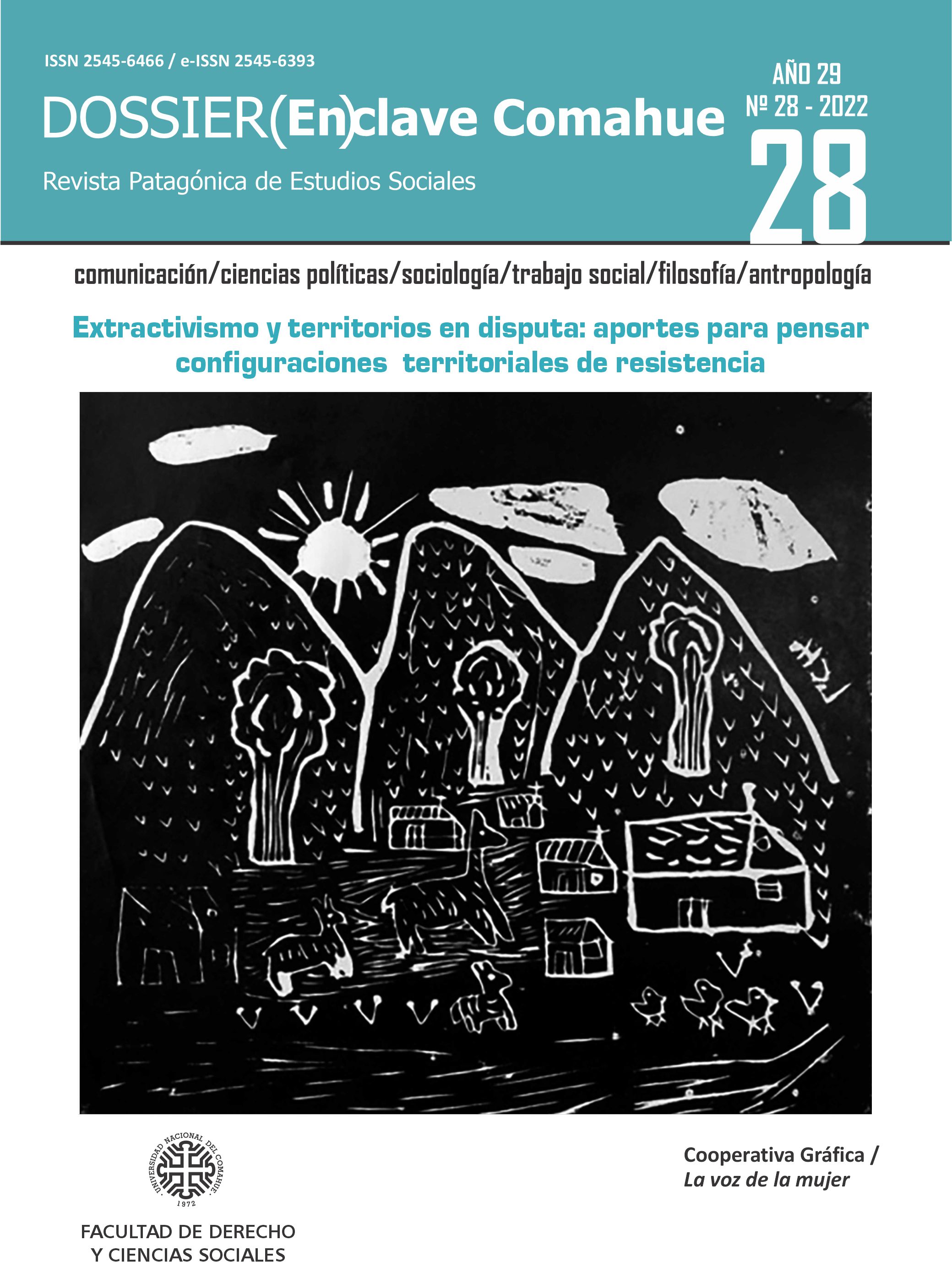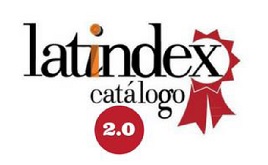Floods and collective action for the re-appropriation of territory disputed by urban-rural extractivism in Lujan, province of Buenos Aires (2012-2015)
Abstract
From an interdisciplinary perspective, we reflect on the scope of extractivism based on an experience of territorial and class struggle in the context of the 2012 floods in Luján (Buenos Aires Province). These floods are considered a turning point in collective action, which gave rise to much debate about their causes directly involving the State. Different social actors participated actively in the discussion, elaboration and definition of key elements of territorial management, such as the current demand for enactment of a minimum-budget law that regulates the use and appropriation of wetlands, and access to decent housing and land, among others.
We analyze different organizational experiences on the part of the affected population, with the purpose of identifying territorial boundaries of the collective process ever since the floods. This article is the result of collaboration between postgraduate thesis research and the systematic and planned territorial work the authors carried out during the floods between 2012 and 2015. In an exploratory - descriptive way, using participant observation as a research technique, we intend to give an account of the organization process in a territory disputed by the advance of urban and rural extractivism.
In the initial section of the article we delve into the main conceptual framework according to which the processes are analyzed. In the following section, we define wetlands in general and in particular the one of the Luján river basin and describe its working, in order to be able to focus on the way in which floods affect the territory of Luján. On this basis, we proceed to analyse the social processes which are the subject of this reflection, so as to identify their territorial boundaries. In the last section we share some final considerations.
usechatgpt init successDownloads
Downloads
Published
How to Cite
Issue
Section
License
Copyright (c) 2023 Pamela Bergés, Alejandra Valverde

This work is licensed under a Creative Commons Attribution-NonCommercial-ShareAlike 4.0 International License.
Los autores de los artículos publicados conservan los derechos de autor y garantizan a la revista el derecho a ser la primera publicación. Los autores podrán adoptar otros acuerdos de licencia no exclusiva de distribución de la versión de la obra publicada (p. ej.: depositarla en un repositorio institucional o en sus sitios personales) siempre que se indique la publicación inicial en esta revista.
Los artículos se publican bajo la licencia de Creative Commons Reconocimiento-NoComercial-CompartirIgual 4.0 Internacional, mediante la cual se permite copiar, reproducir, distribuir, comunicar públicamente la obra y generar obras derivadas, siempre y cuando se cite y reconozca al autor original. No se permite utilizar la obra ni sus posibles obras derivadas con fines comerciales.
ACLARACIÓN: En números anteriores al año 2017 se utilizó la licencia Creative Commons BY-NC-ND para la publicación de los artículos.







